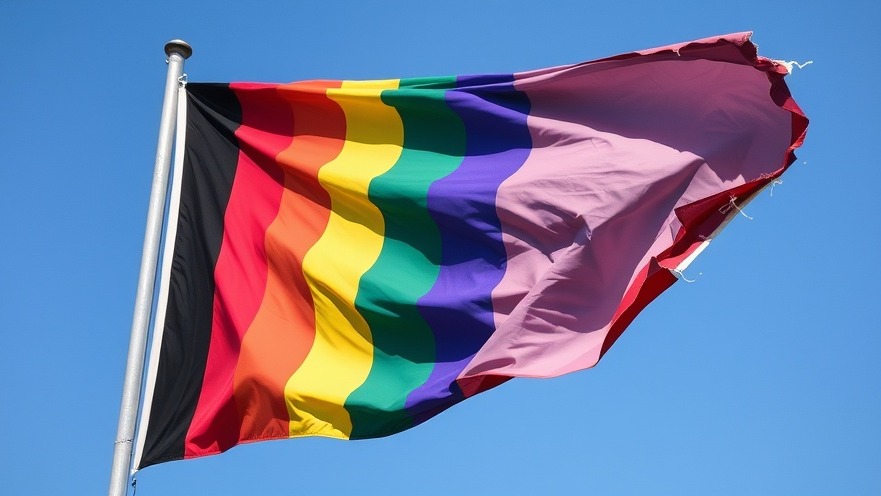
Hearing the Voices: LGBTQ+ Experiences in Religious Spaces
AB Waters, a licensed social worker in Waco, embodies the struggles and hopes of many who have navigated the intersection of faith and sexual identity. Growing up in a Southern Baptist church, Waters faced heartbreak upon coming out—a sentiment echoed by countless LGBTQ+ youth in conservative religious settings across Texas and the nation.
The announcement of a grant aimed at assisting churches to be more inclusive of LGBTQ+ communities sparked a wave of hope within this segment of the population. However, on July 9, Baylor University abruptly returned the $643,401 grant to the Eula Mae and John Baugh Foundation, causing a stir of disappointment among advocates for LGBTQ+ inclusion.
The Fallout of Institutional Decisions
Baylor University President Linda Livingstone’s decision was met with praise from conservative leaders who feel strongly about maintaining traditional Christian values based on the 2009 Statement on Human Sexuality. Critics argue, however, that such decisions further alienate LGBTQ+ members from what should be inclusive church communities. “It’s disappointing to see that yet again Baylor is choosing to further rupture that relationship,” Waters stated, articulating a feeling of betrayal. This incident aligns with Baylor's recent history of backlash against LGBTQ+ initiatives, significantly impacting the perception of the university within both religious and LGBTQ+ communities.
The Context Behind the Controversy
To understand this situation fully, it's essential to grasp the broader social context. LGBTQ+ issues have become a focal point for discussion in many churches, igniting divisive conversations about doctrine and acceptance. In states like Texas, these debates are not just academic but deeply personal, affecting lives, relationships, and spiritual well-being.
In Waco, local churches fostering LGBTQ+ acceptance voiced their disappointment regarding Baylor's retraction, seeing it as a hindrance to important conversations about faith, identity, and community support. “This is a matter of ministering to people where they are,” said one local pastor, emphasizing the need for churches to evolve in their approach to inclusivity.
Explore the Broader Implications: A Question of Authority and Faith
As Baylor navigates its identity as a prominent religious institution alongside these critical social issues, the implications of its decisions extend far beyond its campus. Reports suggest that backlash from conservative factions may have influenced the reversal decision, putting significant pressure on the university to remain within the bounds of Baptist doctrines. This raises questions about academic integrity, research freedom, and whether a religious institution can champion inclusivity without compromising its beliefs.
Future Trends: The Evolving Landscape of Faith and LGBTQ+ Inclusion
The Baylor incident sheds light on a larger trend affecting religious institutions across Texas and the U.S. as a whole. More churches are beginning to openly embrace LGBTQ+ congregants, with movements towards inclusivity gaining traction. However, this is often met with resistance from traditionalist factions within these same communities. How institutions like Baylor balance these pressures will be crucial in shaping the future of LGBTQ+ acceptance in faith-based settings.
Addressing Misconceptions: Clarifying the Debate
Many hold misconceptions about the relationship between faith and LGBTQ+ identity. It is critical to recognize that faith does not inherently conflict with acceptance; rather, it can be a source of strength and community. By facilitating open dialogues and creating opportunities for connection, churches can become places of refuge rather than exclusion. This perspective aligns with a growing body of research advocating for acceptance in faith-based environments.
In light of recent events, it’s pivotal for individuals and communities to engage not only in the dialogue surrounding these subjects but also in advocacy for an inclusive future within both religious and secular spaces. The challenge lies in ensuring that the voices of those often marginalized—like LGBTQ+ individuals—are heard and valued, preventing institutional decisions from perpetuating harm.
As we move forward, the conversations ignited by instances like Baylor's grant controversy are not just debates; they are vital steps towards healing longstanding divides within communities. Finding common ground and nurturing understanding will be essential as society grapples with these dynamic issues.
 Add Element
Add Element  Add Row
Add Row 



Write A Comment